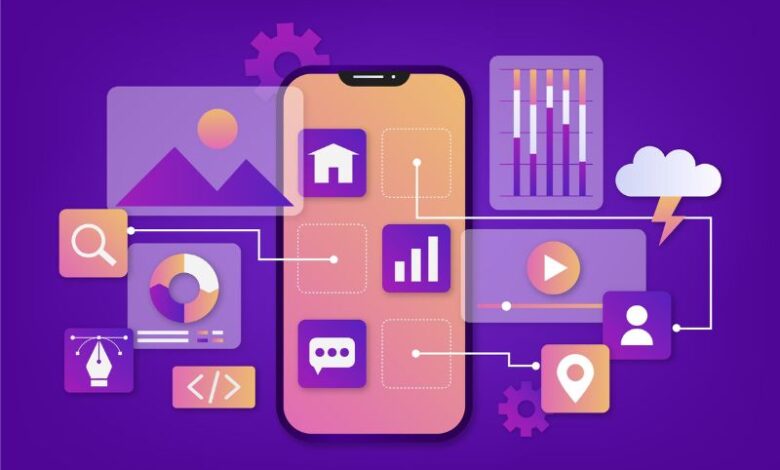Crafting a Successful App Business Plan: Key Steps for Long-Term Success

Creating an app is one thing; building a sustainable app-based business is quite another. With a clear and actionable app business plan, you can turn your innovative idea into a thriving company. Whether you’re launching a startup or expanding an existing operation, having a well-structured plan in place is essential to secure funding, understand market positioning, and achieve long-term growth.
Why You Need an App Business Plan
Before diving into development, many app creators overlook the importance of a comprehensive business strategy. An app business plan serves as a roadmap, guiding you through the various phases of your business. It helps in laying down your goals, identifying your target audience, and setting realistic financial forecasts. Having this document not only increases your chances of attracting investors but also ensures that your team remains aligned with your vision.
Key Components of a Successful App Business Plan
1. Market Research and Analysis
The first step in creating an effective app business plan is conducting thorough market research. By understanding your competitors, target market, and current trends, you can position your app effectively. Look for gaps in the market and consider how your app can meet unmet needs. Tools like Google Trends, Statista, and App Annie can help you gather relevant data.
Questions to Answer:
- What problem does your app solve?
- Who are your main competitors?
- What are the demographics of your target audience?
2. Value Proposition
Once you’ve completed your research, it’s time to define your app’s unique selling points (USP). What makes your app stand out? Whether it’s functionality, design, or user experience, your app business plan should clearly state what sets your app apart from others in the market. This will not only guide your development but will also help in marketing your app to potential customers and investors.
3. Monetization Strategy
Your app’s business plan must include a detailed monetization strategy. There are various ways to make money from apps, such as in-app purchases, advertisements, or a subscription model. Decide early on how you plan to generate revenue, as this will influence your app’s design and user experience. Some apps even combine multiple strategies to maximize profit.
Consider these models:
- Freemium model: Offer a free version with optional in-app purchases.
- Paid apps: Charge a one-time download fee.
- Subscription-based: Monthly or yearly fees for access to premium content.
4. Financial Forecasts
A solid app business plan will outline your financial projections for the next three to five years. These projections should include costs for app development, marketing, staffing, and any other expenses. Investors will scrutinize these numbers, so it’s crucial that they are realistic and based on well-researched data.
Financial projections typically include:
- Estimated revenue streams
- Projected expenses (development, marketing, etc.)
- Break-even analysis
5. Marketing and Customer Acquisition
Even the best apps fail without a good marketing strategy. Your app business plan should detail how you intend to attract and retain users. Will you use social media, paid ads, influencer marketing, or SEO? Don’t forget to include a section on customer retention strategies. Loyal users are more valuable than new downloads, so think about long-term engagement.
Marketing methods to explore:
- App Store Optimization (ASO)
- Social media campaigns
- Email marketing
- Content marketing (blogs, videos, etc.)
6. Team and Operational Plan
Investors want to know that your team has the skills to bring your vision to life. Include a section in your business plan that highlights the experience and qualifications of key team members. If your team is still being assembled, outline the roles you plan to fill and the type of expertise you’re looking for.
Key elements to include:
- Organizational structure
- Key personnel and their experience
- Planned hires and team growth projections
7. Risk Assessment
No business comes without risks, and an app is no exception. A good app business plan will include a section dedicated to potential risks and how you plan to mitigate them. Whether it’s technological challenges, market competition, or legal issues, it’s important to identify these obstacles early on and have a strategy for overcoming them.
Risks to consider:
- Technology risks (bugs, updates, server issues)
- Market risks (competitor apps, changing trends)
- Financial risks (funding, cash flow management)
Final Thoughts: From Plan to Execution
Creating an app business plan is the first critical step in launching a successful app-based business. It forces you to think through every aspect of your app’s lifecycle—from conception to marketing to monetization. But remember, a plan is only as good as its execution. Make sure to regularly revisit and update your plan to reflect changes in the market and your business’s growth.
With a well-constructed business plan, you’ll be better positioned to secure funding, attract users, and build a sustainable, successful app.
For more interesting blogs click here.




